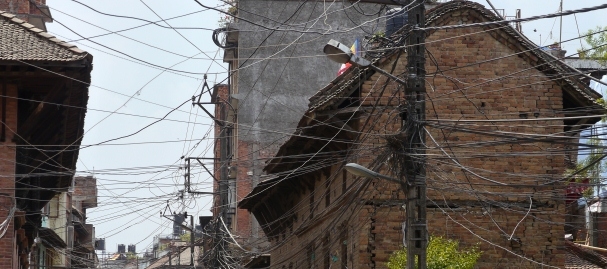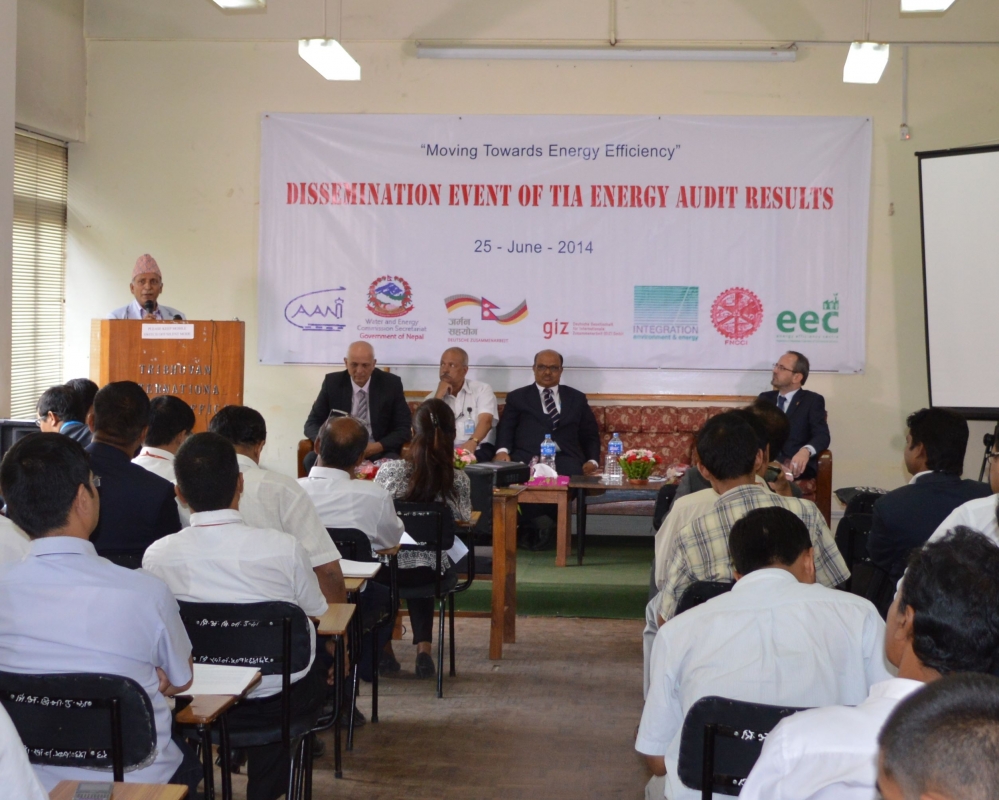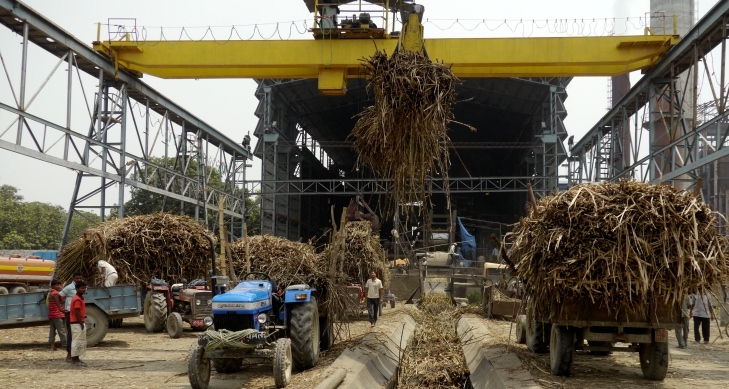

Nepal Energy Efficiency Programme
Scenario
The new consitution of Nepal underlines the role of reliable and affordable energy and its sustainable use for the fulfillment of basic needs and the economic growth of the country. However, despite continuous endeavors Nepal’s energy supply and demand balance, particularly electricity still remains in deficit. According to international energy statistics and by regional comparison Nepal shows a high energy intensity, indicating a generally inefficient use of energy in the country. The Government of Nepal has recognised the problem and as part of its Nationally Determined Contributions (NDCs) committed to adopt a low-carbon development pathway. Nepal intends to develop cross-sectoral approaches for an economy based on low emissions. Hereby, energy efficiency is particularly important for the Government of Nepal. However, so far energy efficiency is not yet recognized as an essential component of energy supply in Nepal.
|
Executive Agencies & Contact Persons |
|
|
Deutsche Gesellschaft für Internationale Zusammenarbeit (GIZ) |
|
|
Ms. Pratibha Manandhar |
Mr. Frank Boemer |
Program Description
The Nepal Energy Efficiency Programme (NEEP) has been promoting energy efficiency in Nepal since 2010. NEEP is implemented by the Ministry of Energy, Water Resource and Irrigation (MoEWRI), the Government of Nepal with technical assistance provided by the Deutsche Gesellschaft für Internationale Zusammenarbeit (GIZ) on behalf of the German Federal Ministry for Economic Cooperation and Development (BMZ). Having successfully improved the framework conditions for the planning and implemention of energy efficiency measures, NEEP continues with the institutional and regulatory mainstreaming of energy efficiency in national energy policy in order to establish energy efficiency as a recognized energy resource in Nepal. The program provides direct advice and expertise to the government for the establishment of policy frameworks for implementing energy efficiency and improve energy conservation measures, helps to strengthen the capabilities of Nepal Electricity Auhtority (NEA) in managing power supply and demand, assists with the establishment of elements of market development for energy efficiency services and efficient products and supports in the initiation process for integrating energy efficiency into university education and vocational training.

1. Policy
The component "Policy" aims at further improving the political framework conditions for implementing measures for energy efficiency and saving. Following the adoption of the NEEP supported biomass energy strategy and the policy decision for promoting sugarcane cogeneration, the Government of Nepal recently developed and adopted the National Energy Efficiency Strategy 2019. Recently, the Alternative Energy Promotion Centre (AEPC) has been designated as the first energy efficiency entity of the Government of Nepal. AEPC is tasked to promote energy efficiency in Nepal and coordinate between national institutions and stakeholders involved in the field of energy efficiency. As the next steps in institutionalizing energy efficiency in the country, the Nepalese government is preparing a National Energy Efficiency Action Plan (NEEAP) and an energy efficiency and conservation bill.

More information on Component 1: Policy
2. Support to the Nepal Electricity Authority (NEA)
This component aims at enabling NEA to develop solutions to the challenges of supply and demand management in the distribution network. On the demand side, NEA is supported in setting up a digital information system to analyze the consumption patterns of its customers, in developing innovative concepts of demand management, and on customer relations towards their purchase of energy-saving electrical appliances and their efficient use. On the electricity supply side, NEA is advised on the introduction of intelligent measurement system in the supply infrastructure (substation, supply lines, transformers) and supported in setting up a digital monitoring system to monitor and mitigate the technical losses of the utility distribution infrastructure.

More information on Component 2: Support to the Nepal Electricity Authority (NEA)
3. Energy Efficiency Market Development
The component aims at establishing necessary elements of market development for energy efficiency services and energy-efficient products to improve the required economic and financial conditions for strengthening energy efficiency and energy conservation in Nepal. In collaboration with Energy Efficiency Centre of Federation of Nepalese Chamber of Commerce and Industries (FNCCI) and Town Development Fund (TDF), energy consumers, businesses, communities and cities are advised on the introduction of standardized operational energy management plans. Furthermore, the current range of services offered by the partners (energy audits, energy management consulting) will be extended to provide investment-related advice for the implementation of energy efficiency measures. On the product side, the project advises on establishing digital customer information platforms to promote energy efficient products. Moreover, economically relevant players on an individual, organizational and societal level will be strengthened through awareness raising campaigns, advice, training, and peer learning in networks for the promotion of energy efficiency.

More information on Component 3: Energy Efficiency Market Development
4. Energy Efficiency in Higher Education / Vocational Training
This component aims at initiating the integration of energy efficiency in higher education and vocational training. The development of well-trained professionals and workers will result in an increased and optimized use of modern, energy-efficient products in enterprises and companies and in a better utilization of the existing employment potential in energy-related professions. In vocational training, the Council for Technical Education and Vocational Training (CTEVT) is developing a course on energy efficiency which will be piloted in selected CTEVT institutes, and then rolled-out as a certified course in a second step. The integration of energy efficiency into existing courses will also be examined through a review of existing curricula. The National Skill Testing Board (NSTB) is supported in developing a national occupational skill standard on “Energy Auditor” for assuring the quality of nationally certified energy auditors for the local labor market. Similarly, the Institute of Engineering (IoE) of Tribhuvan University has begun the development of a short course on energy efficiency in buildings and industries for engineering professionals. The Center for Energy Studies (CES), IoE is supported in establishing an elective module on energy efficiency for one of its Bachelor’s degrees in Engineering and integrating energy efficiency in one of its Master degrees in Engineering courses. An exchange platform is being established to promote dialogue and collaboration between public, private and academia sectors on the topic of energy efficiency.
_1547019081.jpg)
| What is |
| Energy Efficiency? |
| Energy Efficiency, is the goal of efforts to reduce the amount of energy required to provide products and services. |
| (In short terms: Do more with less) |
| +Read more |


